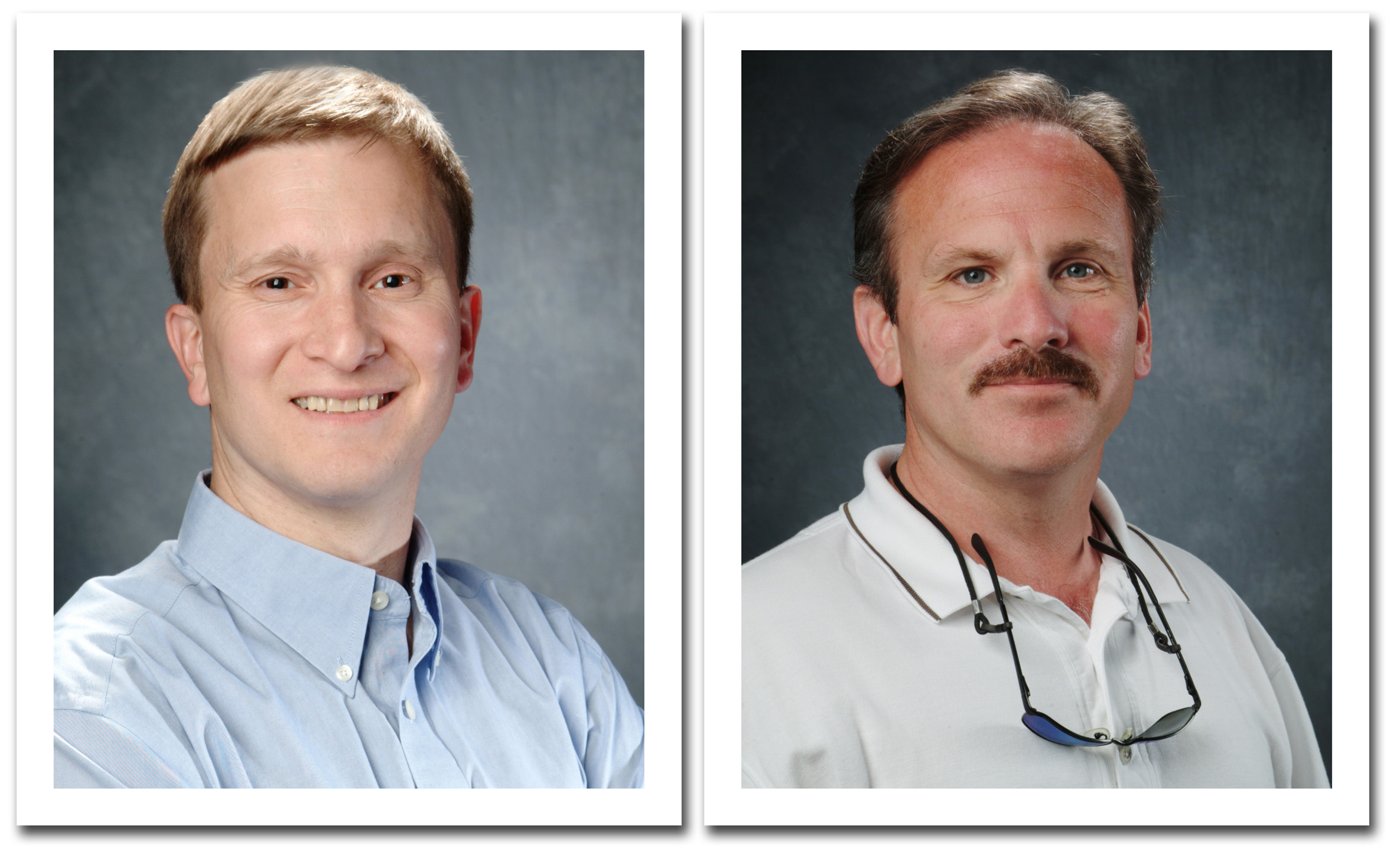FAYETTEVILLE, Ark. — A conversation between two University of Arkansas researchers has led to research funding for an idea to improve purification of proteins derived from genetically engineered bacteria by engineering the impurities out of the bacteria themselves.
Bob Beitle, Louis Owen Professor of Chemical Engineering, and Ralph Henry, professor of biological sciences, are working with researchers at the University of Pittsburgh to take some of the pain out of protein purification. The two institutions have received a $500,000 grant from the National Science Foundation over the next three years to do just that.
“Half the cost of producing protein is in the purification,” Henry said. Techniques to simplify the process could go a long way toward saving companies money in the long term.
Today companies produce many proteins, including antibody fragments of medical and biological importance through recombinant DNA techniques, where the gene for a certain protein or antibody is moved into a bacteria, which then expresses the protein. Proteins released from the bacteria are then poured through a type of column called a metal affinity column where the protein of interest carries an affinity tag that adheres to metals attached to beads within the column while the bacteria’s proteins are washed away.
This technique has limitations, both because not all of the target protein adheres to the column, and many impurities also remain in the column, meaning that companies must go through at least one more — and sometimes multiple — purification processes. This is essential for medical-grade and research-grade purity.
Henry and Beitle were lamenting the multi-step purification processes one day when they had an idea — what if you could genetically engineer the bacteria so that it stopped producing the impurities that adhere to the column?
“It’s a matter of making the host behave well, and also the protein you’re trying to recover behave itself,” Beitle said.
To that end, the Pittsburgh researchers will be modifying the tail end of the proteins to strengthen the binding process in the column, he said.
Henry and Beitle, meanwhile, are identifying the genes that create nuisance proteins in the e-coli genome. They have been working with the University of Arkansas Statewide Mass Spectrometry Facility to match known DNA sequences with their possible products in the genome.
“The Mass Spectrometry Facility has been critical in the identification of these nuisance proteins,” Henry said.
The mark of success for the Arkansas group would be creating an engineered cell line that grows as well as regular cells but does not produce the protein impurities so that the second purification step can be eliminated. As the researchers identify the sequences nuisance proteins, they are seeking areas that look like they might cause the impurity to bind to the metals.
“First we knock out the gene, then we ask, will the bacteria still grow? Then we want to know if it will still produce recombinant protein,” Henry said. It may take a while for the researchers to figure out which bits of DNA to eliminate and which ones to keep.
“Molecular biology can be a bit of trial and error,” Beitle said.
Either approach may help solve the purification problem, but if the two techniques prove successful they could create a clean system with low levels of impurity, passing cost savings on to biomanufacturing companies.
Beitle and Henry began the initial work on this project with a grant from the Arkansas Biosciences Institute. The University has applied for patent protection on the bioengineering process they invented, as well as the modified host cells and the cell lines used in the system, and is looking for a commercialization partner serving the bioseparation field.
Beitle is a professor in the Ralph E. Martin Department of Chemical Engineering in the College of Engineering and Henry is a professor of biological sciences in the J. William Fulbright College of Arts and Sciences.
Contacts
,
